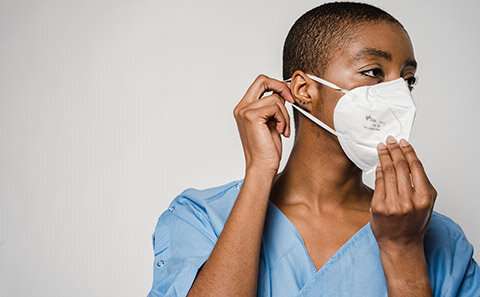
Female healthcare workers and those from Black And Minority Ethnic (BAME) backgrounds have struggled to find personal protective equipment (PPE) that provides them with adequate protection, a new study has found.
Researchers at the University of Southampton found that most masks are not designed for BAME and women, due to limited research into how differences in facial dimensions across gender and ethnicity affect PPE performance. There findings have been published in the journal BMJ Global Health.
Previous studies have shown that BAME people have been disproportionately affected by COVID-19. Amongst NHS staff, 63 percent of COVID-related deaths are of BAME people, even though they represent only 20 percent of the workforce.
For PPE respirators to provide respiratory protection they must fit the user well, and this is determined by ‘fit-testing’—a process of trialing facemasks for any inward leaks until one is identified which provides a good seal to keep out harmful aerosols.
The Southampton research team looked at studies worldwide into how well respirators fit according to facial measurements, gender and ethnicity. Over half of the studies focussing on gender reported a higher fit test failure rate for women compared to male participants. Analysis of studies which looked into facial dimensions of the participants showed significant differences between men and women, ranging from 0.4 millimeters to 22 millimeters, which may impact whether standardized facemasks were able to provide a good enough seal for the wearers.
A similar trend was observed in studies that included good representation of BAME participants, although the number of studies exploring fit test differences between ethnicities were very limited. The authors are therefore advising that further studies into PPE development must include a broader consideration of female and BAME healthcare workers.
Lead author of the study, Dr. Jagrati Chopra said: “The NHS has a very diverse workforce, however design of PPE still seems to be based on a predominantly white, male workforce. The high rate of BAME healthcare workers affected by the pandemic has shown how important it is to have enough respiratory equipment to suit everyone, regardless of gender or background.
Source: Read Full Article
